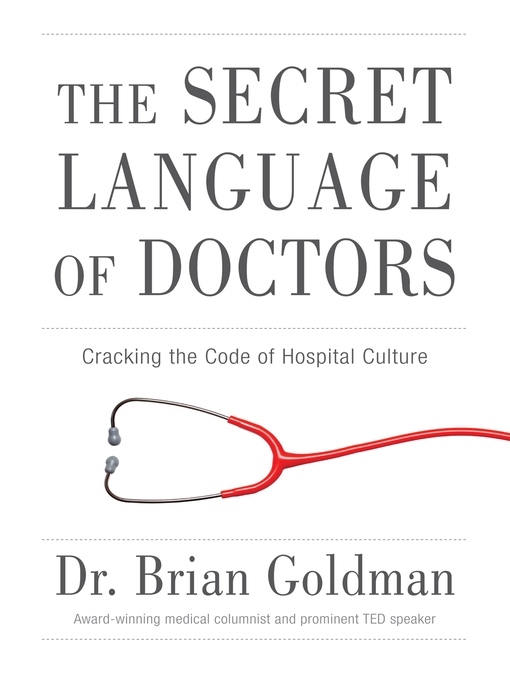Most people have visited a doctor's office or emergency room in their lifetime to gain clarity about an ailment or check in after a procedure. While doctors strive to ensure their patients understand their diagnoses, rarely do those outside the medical community understand the words and phrases we hear practitioners yell across a hospital hallway or murmur to a colleague behind office doors. Doctors and nurses use a kind of secret language, comprised of words unlikely to be found in a medical textbook or heard on television. In The Secret Language of Doctors, Dr. Brian Goldman decodes those code words for the average patient. What does it mean when a patient has the symptoms of "incarceritis"? What are "blocking" and "turfing"? And why do you never want to be diagnosed with a "horrendoma"? Dr. Goldman reveals the meaning behind the colorful and secret expressions doctors use to describe difficult patients, situations, and medical conditions—including those they don't want you to know. Gain profound insight into what doctors really think about patients in this funny and biting examination of modern medical culture.
- NYT Best & Notable Since 2000 eBooks
- New eBook additions
- Invention, Innovation, and Inquisitiveness
- Read a Classic You Missed...
- Scifi Absolute Classics
- Contemporary Romantic Comedy
- If you like Danielle Steel, try these!
- If you like John Grisham
- Michael Connelly alike ebooks
- Fairy Tale, Myth, and The Hero's Journey
- Always Available Classics
- National Book Award Longlist ebooks
- And the Prize Goes to....
- See all ebooks collections
- NYT Best & Notable Since 2000 eAudio
- Full-cast recordings
- New Audiobook Additions
- Find and Listen to a Classic That You Missed...
- Get Your True Crime Fix
- Read by a Celeb
- Listen to a New Series
- If you like Danielle Steel, Try These!
- Michael Connelly alike audiobooks
- If you like Stephen King...
- Fantasy here!
- Audio available now
- Top Audiobook Narrators
- See all audiobooks collections
- Pride
- Celebrate Diverse Voices
- Sexual Assault Awareness
- Parenting
- Parenting Teens
- Managing Stress and Anxiety
- Sobriety
- We Can All Go Back to School
- See all featured collections collections

